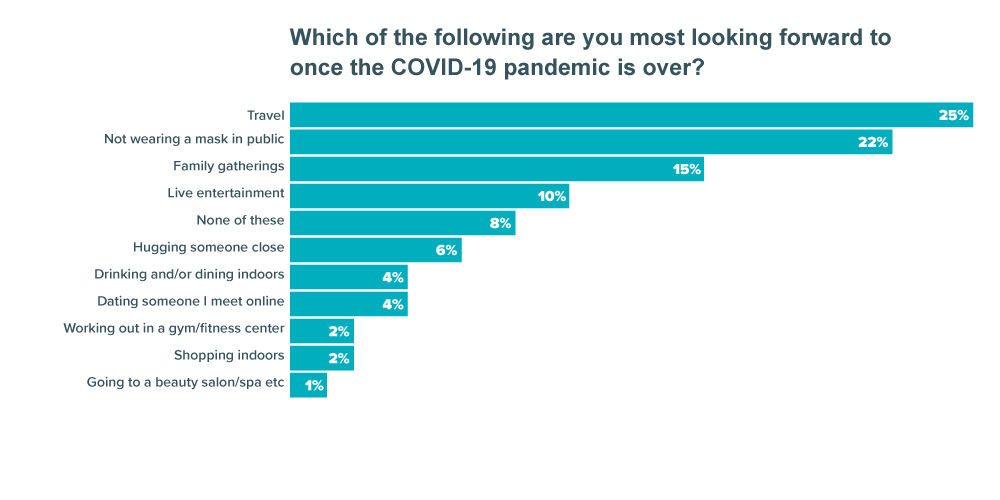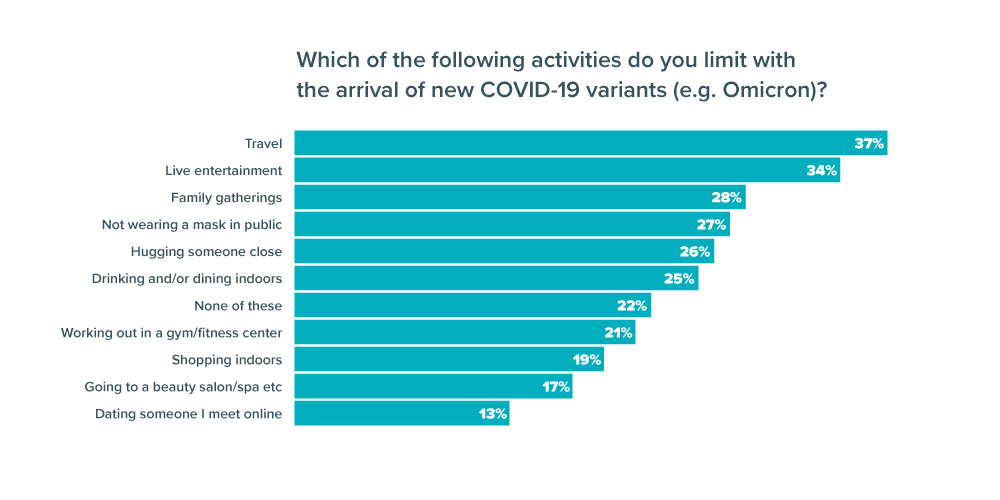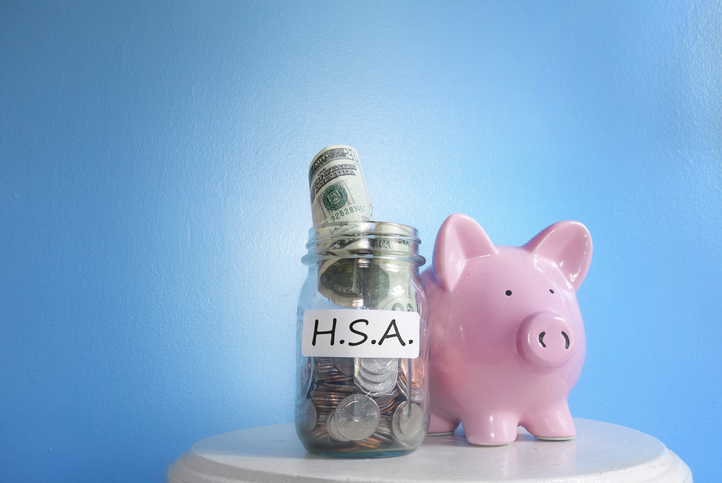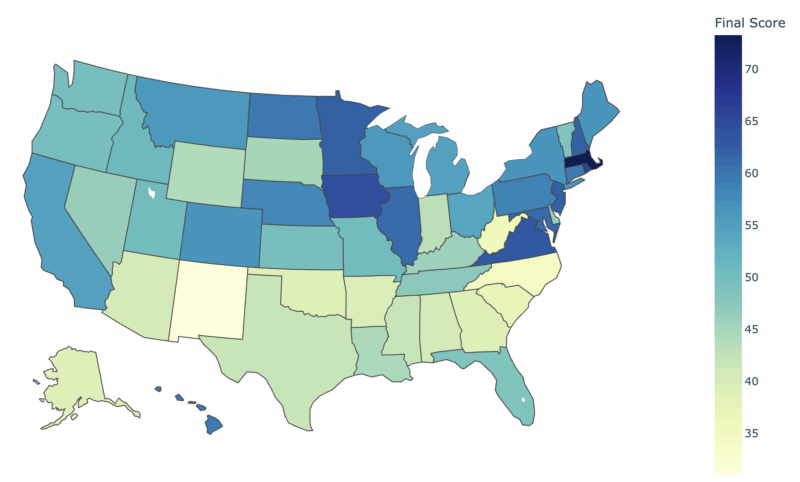Written by Michael LaPick
Healthcare Writer
We want to help you make educated healthcare decisions. While this post may have links to lead generation forms, this won’t influence our writing. We adhere to strict editorial standards to provide the most accurate and unbiased information.
Key Findings
- 39% of Americans think life will return to normal in the coming year, down from 61% in 2021
- 61% think a COVID-19 vaccine will help end the pandemic, up from 51% in 2021
- Three times as many think their investments will fall (13%) as think their investments will rise (4%) in the coming year
- Two-thirds (64%) report increasing their health precautions because of the Omicron variant
- 13% say they’ll be comfortable returning to normal activity once they’ve been vaccinated, down from 25% in 2021

HealthCareInsider’s 2022 COVID-19 Attitudes Survey shows hopes for normalcy dropped over the past year.
HealthCareInsider COVID-19 Attitudes Survey 2022
Key Findings
39% of Americans think life will return to normal in the coming year, down from 61% in 2021
61% think a COVID-19 vaccine will help end the pandemic, up from 51% in 2021
Three times as many think their investments will fall (13%) as think their investments will rise (4%) in the coming year
Two-thirds (64%) report increasing their health precautions because of the Omicron variant
13% say they’ll be comfortable returning to normal activity once they’ve been vaccinated, down from 25% in 2021
As the world enters a third year of the COVID-19 pandemic and Omicron surges, Americans are losing hope for a swift return to normal.
In HealthCareInsider’s 2021 survey, more than six in ten (61%) Americans thought life would return to pre-pandemic normal sometime in 2021.
This year, Americans are less confident about a return to normal within the next year.
Fewer than four in ten Americans (39%) think life will be back to normal at some point in 2022.
About three in 10 (27%) believe life will return to normal in 2023 or later.
But a similar percentage (30%) think the pandemic will never end and COVID-19 will remain endemic for the foreseeable future.
Greater Belief Vaccines Will Help End Pandemic
Americans are now more likely to believe that vaccines will play a role in ending the pandemic.
While just 51% of Americans in the 2021 survey thought a COVID-19 vaccine would help end the pandemic, that number jumped 10 percentage points to 61% in the 2022 survey.
Still, 21% of Americans don’t think the vaccine will play a role in ending the pandemic.
Even after (or if) this pandemic comes to an end, many Americans still have concerns about the future.
About two-thirds (65%) of Americans are worried about the possibility of another pandemic, with 28% saying they are very concerned.
Americans Already Comfortable Resuming Certain Activities
Asked when they’ll be most comfortable resuming normal activity, the greatest number of Americans (37%), say once herd immunity is achieved.
Another 22% say they’ll never be comfortable as COVID-19 has made them more cautious about returning to normal activity.
But an equal percentage (22%) say they’re already open to resuming normal activity or never changed their routine in the first place.
Fewer (13%) say they’ll be comfortable returning to normal activity once they’ve been vaccinated — a significant decrease from the 2021 survey, when 25% said inoculation would make them secure returning to normal life.
When it comes to specific activities of normal life, like shopping and traveling, many Americans say they’re already comfortable.
61% of Americans say they’re comfortable shopping indoors at this point in time. Another 12% think they’ll feel okay doing this by the spring, while 7% think it will take until next summer.
More than half say they are comfortable hugging someone close (54%) and drinking and dining indoors (52%).
Looking at those who aren’t comfortable drinking and dining indoors just yet, the largest percentage (13%) think they’ll be ready to do so in spring 2021.
When it comes to travel, about one-third (34%) of Americans say they are already comfortable.
Others seem ready to get back on the road soon. 13% think they’ll feel comfortable traveling by spring 2022, while 18% anticipate traveling again in summer of next year.
One in five (20%) don’t think they’ll be comfortable traveling until 2023 or later. But relatively few (5%) Americans say they’ll never travel again.
Americans’ appetite for travel is also reflected in another survey question about what people are looking forward to once the pandemic is over. The most common answer is travel, at 25%.
A similar percentage are most excited to not have to wear a mask in public (22%) and 15% are looking forward to family gatherings.

Lifestyle Shifts Here to Stay
COVID-19 changed the way people approach work, shopping, healthcare, and other activities of daily life, and many Americans think these changes are here to stay.
30% think the trend most likely to continue after the pandemic is increased online shopping.
About one-quarter (24%) think working from home is here to stay, and 12% say it will be the practice of wearing a mask in public.
Additional data suggests that the pandemic has changed the way Americans approach healthcare.
40% say the pandemic has made them more likely to use telehealth services and 37% say it has made them more likely to stay up to date on vaccinations.
About one in five (21%) said the pandemic made them more likely to visit the doctor when they feel unwell, though 15% took the opposite stance (meaning they’re less likely to see a doctor when they feel sick).
New Variants Impact Travel, Live Entertainment
The arrival of the Omicron variant has many Americans changing their habits.
Nearly two-thirds (64%) report increasing their health precautions either somewhat or a lot because of the new variant.
With the new variant spreading rapidly in the U.S., many Americans decided to limit holiday travel, family gatherings, and other activities.
37% of adults say they limit travel when a new variant like Omicron is present, and 34% limit live entertainment like concerts or sporting events.
28% may limit their family gatherings, and 27% limit the practice of not wearing a mask in public.

Delaying Life Events, Worried About Their Investments
The pandemic has caused some to delay major life events and big-ticket purchases.
Six in 10 Americans are putting off travel because of the pandemic, while 44% say they’ve canceled or delayed family gatherings.
10% delayed getting married, while 7% delayed having children and 6% put off college.
Americans between the ages of 18 and 29 are especially likely to report delaying plans to attend college (20%) or get married (19%).
Others put off major purchases because of the COVID-19 pandemic. 17% delayed buying a car, while 15% put off home remodeling projects.
Slightly fewer (12%) delayed buying a house, while a similar percentage put off education (11%) or purchasing a major appliance (11%)
Some may also be hitting pause on purchases because of concerns over how COVID-19 will affect their finances.
13% of Americans are worried that their investments will fall, while only 4% see their investments rising in the next 12 months.
Meanwhile, a similar percentage have concerns about their savings running out (12%) and their debts rising (12%).
But it’s not all bad: 8% of Americans think that their savings will increase because of the pandemic, and 7% think they can get a better job.
Methodology: HealthCareInsider conducted this survey utilizing a SurveyMonkey Audience on December 13, 2021, among a national sample of 1,183 U.S. adults aged 18+. The modeled error estimate for this survey is plus or minus 2.0 percentage points. The sample was balanced for age, gender, and U.S. Region according to the Census Bureau’s American Community Survey.
Thank you for your feedback!







